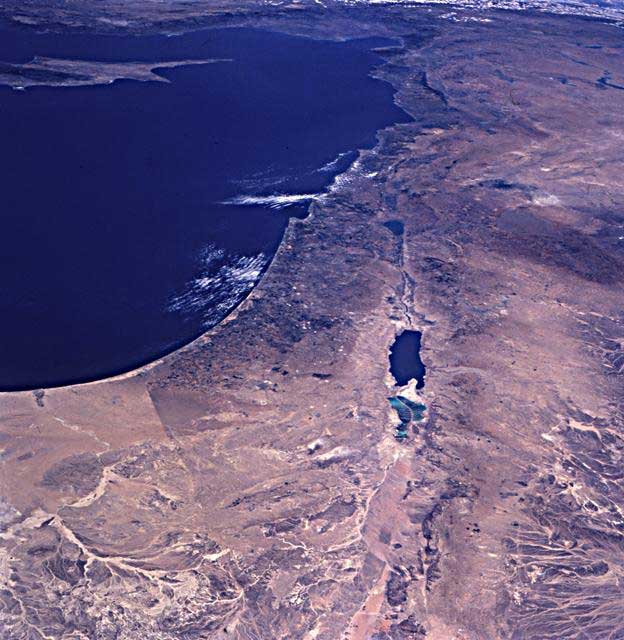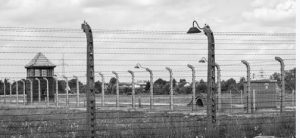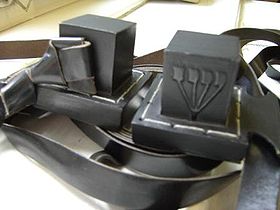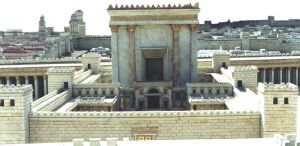Parashat Devarim “These are the words that Moses spoke to all Israel…” Our sedra begins with this pasuk, which hints that Moshe did not indulge in idle talk, but only talked Torah. How great was our leader, Moshe Rabbenu! Rav Chaim Ozer Grodzinski Zt”l tells us that the Chafetz Chaim Zt”l used to keep away from Lashon Harah (evil talk) in a most original way: not by keeping silent, as most of us would imagine, but on the contrary, by consistently talking Torah, so that there was never a moment for Lashon Harah! When Moses spoke here we are told that in fact it was 36 days before his death. This is hinted at in the word “these” which has a numerical value of 36. He is addressing all of Israel, both the living and the dead (i.e. including the generation of the desert who had already died due to the sin of the spies). When Hashem told Moshe that he would die after the war with Midian, Moshe asked if he could review the entire Torah and its laws before he died. Not only did he do that, he did it in seventy different languages! One reason for this is that all future generations in the exile will be able to understand the Torah in his own language. Another explanation is that Moshe in fact reviewed the seventy facets of the Torah. Now that’s what I call a leader! Imagine this for a moment. Have you ever been to a concert at Wembley Stadium? Perhaps you would have seen the amplification needed for a concert for, say, 20,000 people – it is an incredible array of equipment. Yet here, an entire nation of 600,000 men (not to mention the women and children) are being addressed by one man! How could they possibly have all heard? Indeed, Hashem performed a great miracle by making sure that every person did hear, and with clarity, so that everyone had the opportunity to speak up at the time. In this way, nobody would be able to discount the rebuke at a later time. Why was Moshe’s rebuke effective before his death? 1. If the rebuke is in one sermon, it is better than constantly repeating the faults over a period of time. Additionally, Moshe knew that before the battles of Sichon and Og, the people thought that he wouldn’t be successful , thinking that Moshe would use their sins as a pretext to die in the desert. Now that these two kings were dead, Moshe thought that the people will acknowledge that his rebuke was for their benefit. Additionally, the people were now in a tranquil state of mind. To administer this admonition, Moshe waited until the Israelites were on the far side of Jordan. Once they had come close to their eventual destination, they would be in a better frame of mind to accept the rebuke. This rebuke, at first, is veiled: Moshe didn’t want to come down harshly on the Jews. He tells us that we are “like the stars of heaven in abundance”. But there are billions of stars. How can he make this unrealistic comparison? In the gemara of Sanhedrin, we are told that “the wicked do not really have a number”, meaning that they may be numerous but they are unimportant. The reverse is true of the righteous: though they are few, their influence is great. Just as each star is important in its own right, so each Israelite contributes to the importance of the whole. Yes, it’s true – WE ALL STAND TOGETHER! Moshe describes “the great… Euphrates river”. We know that this was the smallest river mentioned in Bereishit, the first parsha in the Torah. However, to Moshe it was ‘great’ because it connected to Israel; this shows Moshe’s respect for the Land, in sharp contrast to the spies, who so much maligned the Land as to cause us to wander in the desert for forty years. Moshe then asked the people to appoint judges who are “wise, understanding, and well known” (‘known’ meaning familiar to the tribes). However, when they are assigned, Moshe only describes them as “wise and well known”. This shows us that none of the judges had understanding. Moreover, the word ‘men’ seems extraneous. Surely all judges are men? Or are women sought out as judges, too? The answer is no – ‘men’ is used to convey venerable and revered judges. Moshe then rebukes the people about the spies. Surprisingly, Moshe says that “the thing was good in my eyes”. He means his eyes, as opposed to the Eyes of Hashem (as it were). Concerning the people, Moshe says “all of you approached me [to send spies]”. It appears from here that the Israelites came to Moshe in a disorderly fashion, as opposed to Mount Sinai, when they approached him properly. There are (at least) three reasons for this lack of respect: 1. At Sinai, the people had heard Hashem say “Honour your father and mother”. In this state of mind, they had sent the elders ahead, out of respect. However, here, with the incident of the spies at Kadesh Barnea, the elders had attempted to wage war against the constant complaining of the people. The young men then pushed the elders for fear that the elders would have their way. Still, how could the people send spies, when they knew that Hashem protected them with the Clouds of Glory and the Pillar of Fire? The answer is, the people had lost faith because they knew that Moshe was going to die. They (mistakenly) thought that as a result, this protection was going to stop. As Moshe’s successor Joshua was only 42, they reckoned that they would have to choose a man from each tribe to share the leadership with him. Consequently, though, the Israelites realised their sin and cried to Hashem, “but Hashem did not listen to your voice”. But are we not told by our Rabbis that “the gates of tears are never locked”? How could Hashem have refused the tears of the Jews, who openly regretted their actions? The answer is held in the very statement “the gates…” If the heavens are wide open to tears under all conditions, why are gates even necessary? This is to teach us that there are situations where tears are not accepted. One situation is mock contrite or ‘crocodile’ tears. Another, is when Hashem has already sworn a heavenly decree, as He in fact did here. Once the sentence has been pronounced, there is no appeal. We must do teshuva NOW!!! Regarding Moav, Hashem tells us “do not incite a war against them” – this implies that they may have been put to labour. Moshe tells us that we would not have had to fight any of our battles for Israel. We could have just walked in and they would all have fled – if we hadn’t sinned. At that point, Moshe recounts that Hashem spoke to him “when all the men of the war had finished dying”. From here we learn that Hashem didn’t speak to Moshe for an incredible 38 years, after the last of the generation of the desert had died. Hashem then commands the Jews to march towards Israel on “this day…under the entire heaven”. The Midrash tells us that this meant that the sun stood still for Moshe. Why? So that everyone would see that Hashem was fighting for Israel against the seven nations (who occupied the Land at the time) in order that nobody would ascribe G-d’s victory to ‘coincidence’. Regarding Heshbon (land of the evil king Sichon) Moshe says that he sent messengers from ‘Kedemoth’. Where is this? It is none other than Sinai , so called because it was the ‘kadmuth’ (origin) was given there – the Torah. Both the war against Sichon and Og, giant king of Bashan, were great victories for the Jews – though they were by no means easy. The Torah says that Og’s bed was nine cubits long (appr. 13.5 ft). Rashi reasons the measurement differently. A cubit is the distance between the elbow to the tip of the middle finger (appr. 1.5ft). However, the Torah says the measurement was according to “the cubit of that man” – and who knows how big the forearm of a giant is! We have a clue in the Midrash which tells us that Moshe was 10 (man-size!) cubits tall, his staff was 10 cubits, and he could jump 10 cubits – yet he could only reach the heel of Og! Nevertheless, by striking his heel, Moshe killed him! The sedra ends with Moshe informing us that he had commanded Joshua not to fear future kings who fight against us, for “Hashem…shall wage war for you”. Watch this space next week for the next part of Moshe Rabbenu’s 36-day Devar Torah! SHABBAT SHALOM |





